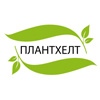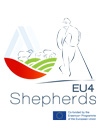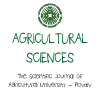General Agriculture and Herbology
The department of „General Agriculture and Herbology” is a main unit in the faculty of Agronomy at the Agricultural University of Plovdiv. It exists since the establishment of the faculty. The department has rich traditions and experience, 3 education rooms, as well as great facilities, allowing for a quality learning process, and also research and implementation activities at a high contemporary level.
The subjects General agriculture, Herbology, Ecological crop rotations, Monitoring, Integrated crop protection, Systems of agriculture, Systems for weed control in spring field crops, are being studied in all faculties of the university and occupy an appropriate place in the curricula. The training is delivered in both educational degrees – bachelor and master. The department is accredited to train PhD students in Herbology, and in the last 10 years more than 15 PhD students are trained. From 2023, the department of ”Agriculture and herbology” is accredited in the scientific specialty “General agriculture”, and to this moment there is one PhD student that is working on a PhD thesis.
The department of „General Agriculture and Herbology” supervises 14,2 hectares of land in the base for training and implementation at the university. There demonstration fields are being performed. On the fields of the base different crops are grown and field research trials are conducted. There are possibilities for irrigation. The trials include studies on crop rotations, soil tillage operations, evaluation of the efficacy and selectivity of new herbicides and their mixtures with other pesticides, as well as fertilizers. In front of the study rooms, in the corridor of the department TV monitors are installed on which photos with the most economically important weeds and results from the field experiments are permanently broadcasted. On the corridor a herbarium collection of the 150 most distributed weeds in Bulgaria is permanently exposed.
In 2019 the scientific laboratory № 8 was reconstructed, renovated and equipped with thermostat, scales, apparatus for hectoliter mass and moisture content measurements, etc.
On the experimental field of the department there is a completely renovated building, which is equipped with specialized rooms, weighting room, showcases for preparations, sprayers, etc. The building is with total area of 200 m2 and is in process of continuous upgrading with new and modern equipment from various projects and contracts (motocultivator, sprinkler system for irrigation, drip irrigation systems, specialized sprayers for precise application of herbicides and other pesticides, precise laboratory equipment, etc. Very close to the building there are 3 greenhouses, each of them with an area of 350 m2, intended for precise trials.
On the experimental field a joint research with the departments of ”Plant physiology and biochemistry”, „Phytopathology”, „Entomology”, „Soil science and agrochemistry”, „Field crop production”, etc. is being conducted.
The department has highly qualified teaching staff including four associate professors, one chief assistant and twos assistants. The support staff consists of one employee that is a chief expert.
Head of Department
Members
Administration
Mariya Ilieva
- Phone: +359 654 484
- E-mail: herbologia@mail.bg
 - Events on the occasion of the 80th anniversary of AU
- Events on the occasion of the 80th anniversary of AU

















